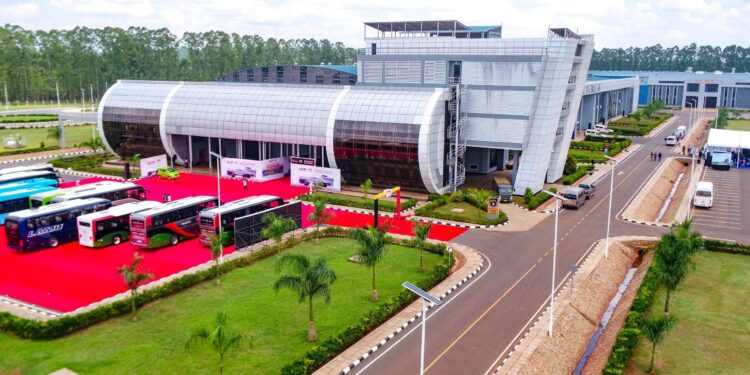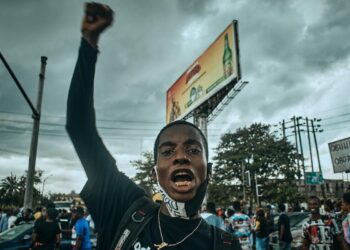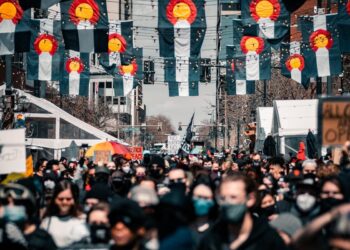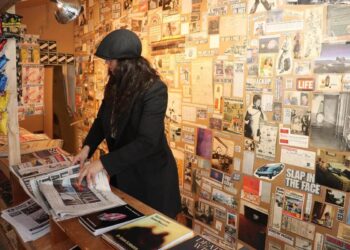Jinja, Uganda – President Yoweri Kaguta Museveni has commissioned Africa’s largest electric bus manufacturing plant in Jinja, describing it as an important milestone for Uganda’s industrial growth and a step towards green transport.
The Kiira Vehicle Plant, located in Jinja Industrial Park, covers more than 100 acres and has been described as the most advanced bus facility on the continent. It will produce electric buses, hybrid models, and low-emission diesel coaches for both Uganda and regional markets.
During the commissioning, Museveni toured the factory and took a ride in one of the buses produced there. He said the launch showed that Uganda was no longer only a consumer of foreign goods but was now becoming a producer of advanced technology. He explained that the project demonstrated the skills and knowledge of Ugandans and noted that the country was moving towards building an economy that serves its people and Africa at large.
The plant is equipped with modern workshops, including a body shop, paint shop, chassis systems, trim and assembly, quality inspection, and testing lines. It also has a design and engineering centre to support research and innovation, along with a test track to check vehicle standards.
At the beginning, the plant will produce around 2,500 vehicles per year. Plans are in place to increase capacity to 10,000 vehicles annually in the future. Among the models expected from the factory are the Kayoola EVS, an electric city bus made for African roads, and Kayoola coaches for long-distance routes.
Museveni said the project would create jobs and opportunities for Ugandans. The factory is expected to employ hundreds directly and benefit thousands more indirectly through suppliers, logistics, and other services. Young people will also gain technical and engineering skills through training programs linked to the plant.
Officials explained that the facility would not only make vehicles but would also build a strong local value chain. Ugandan companies are expected to supply materials and parts, which would help reduce the import bill for buses and vehicle spares.
The President noted that Uganda’s iron ore resources could be used to make steel, which would support industries like the Kiira Vehicle Plant. He pointed out that producing such raw materials locally would further reduce imports and strengthen the economy.
Economists believe that the project will also revive Jinja’s position as an industrial hub. Once considered Uganda’s industrial capital, Jinja had lost some of its shine, but the electric bus plant is expected to attract new business and investment.
Museveni said the project had come at a time when the world was moving towards clean energy and sustainable transport. He explained that Uganda’s entry into electric bus production put the country ahead of many others in Africa. The buses would help reduce pollution, save money spent on fuel imports, and contribute to Uganda’s climate goals.
Experts added that the factory could serve markets across East Africa, giving Uganda an advantage in providing green transport solutions for the region.
The President promised that the government would continue supporting industries that focus on value addition and innovation. He encouraged Ugandans to support locally made products, saying that doing so would strengthen the country’s economy.
The commissioning ended with a tour of the facility, where guests saw the first buses produced at the plant. Many described the launch as a new chapter for Uganda’s industry, showing that the country is ready to take the lead in Africa’s green transport revolution.




